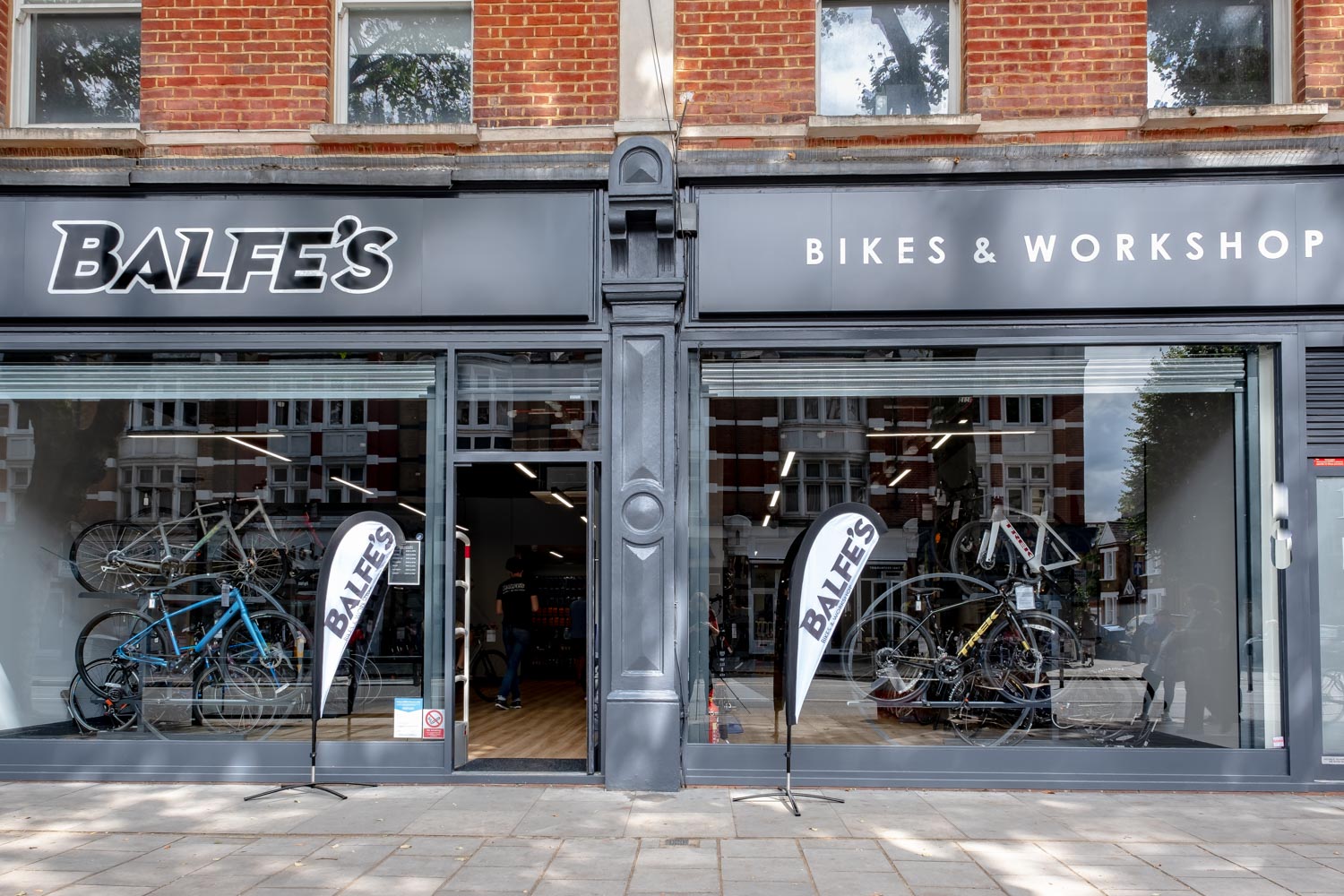Cycling industry 'most turbulent it's been for 30 years' as major UK chain posts £1.6m loss
Balfe's Bikes director Mike Rice says sales are now up, after a tough financial period


The latest race content, interviews, features, reviews and expert buying guides, direct to your inbox!
You are now subscribed
Your newsletter sign-up was successful
Mike Rice, director of London bike shop chain Balfe's Bikes, has said the cycling industry is the most turbulent he has ever known, after his company posted financial losses.
In Balfe's Bikes' newly published accounts, which cover the year to 31 March 2023, the chain recorded a pre-tax loss of £1.597 million, following a run of profit-making years.
The company's overall turnover also fell, from £29 million in 2022, to just under £26 million.
Speaking to Cycling Weekly, director Rice said the period was "definitely a very challenging year for us".
"Over the Covid period and post, the industry has had more turbulence than I’ve seen in the 30 plus years I’ve been involved in it," he said. "That’s clearly had ramifications and implications on a large number of businesses within the cycling industry.
"As we’ve unfortunately seen, there has been a number of casualties, with bike brands and distributors going bust, and more recently the administration of Wiggle Chain Reaction Cycles.
"We haven’t seen things on that scale in the cycling industry ever. While there was a significant boom during Covid, it has definitely come back down to earth with a significant bump, and we’re still seeing the challenges."
The latest race content, interviews, features, reviews and expert buying guides, direct to your inbox!
Rice explained Balfe's Bikes had undergone "restructuring costs" in the loss-making period, which included closing one of its two warehouses. 10 members of staff were also made redundant in the autumn of 2022.
In a statement accompanying the accounts, the director cited "significant disruption to the supply chain" and "large overstocks" as wider factors affecting the industry.
Balfe’s Bikes was founded in 2008 by Richard Balfe, who stepped down from his position as CEO in May this year. The chain currently operates 12 stores throughout London and the South East, selling well-known brands such as Trek, Specialized and Giant.
In company accounts published before and during the pandemic, Balfe’s Bikes recorded pre-tax profits, its best performance coming in the year to 31 March 2021, when it posted gains of £925,770.
Looking ahead, Rice said the current financial period gives cause for optimism. "We're pleased to report that we've seen sales growth through our stores of almost 10% over the peak summer period," he told Cycling Weekly.
The director added that this year's Black Friday sales are set to be up 25% on 2022.
"We've also seen significant growth in [bike] servicing," he said. “For us, it’s a very good indication that, while the industry is in a tough and challenging position, people are continuing to utilise bikes. Hopefully that has good implications for the industry in the long run.”
Despite this, Rice explained, Balfe's Bikes' short-term plan is to "batten down the hatches" and "focus on operational excellence, not investing".
The company's losses come in a tough year for the cycling industry, in which three major distributors have collapsed; Moore Large, 2Pure and FLi.
Two of Balfe's Bikes' key competitors in London, Evans Cycles and Sigma Sports, also posted losses in their latest company accounts. This followed after major chains Cycle Surgery and Cycle Republic closed their stores in the capital in 2020.

Tom joined Cycling Weekly as a news and features writer in the summer of 2022, having previously contributed as a freelancer. He is fluent in French and Spanish, and holds a master's degree in International Journalism. Since 2020, he has been the host of The TT Podcast, offering race analysis and rider interviews.
An enthusiastic cyclist himself, Tom likes it most when the road goes uphill, and actively seeks out double-figure gradients on his rides. His best result is 28th in a hill-climb competition, albeit out of 40 entrants.